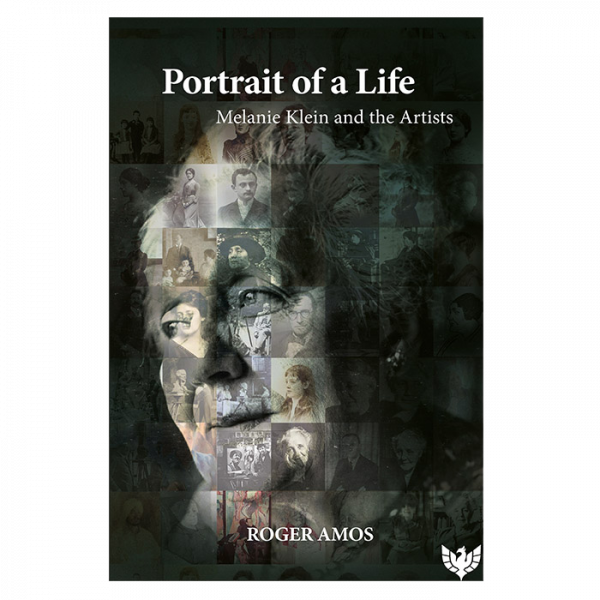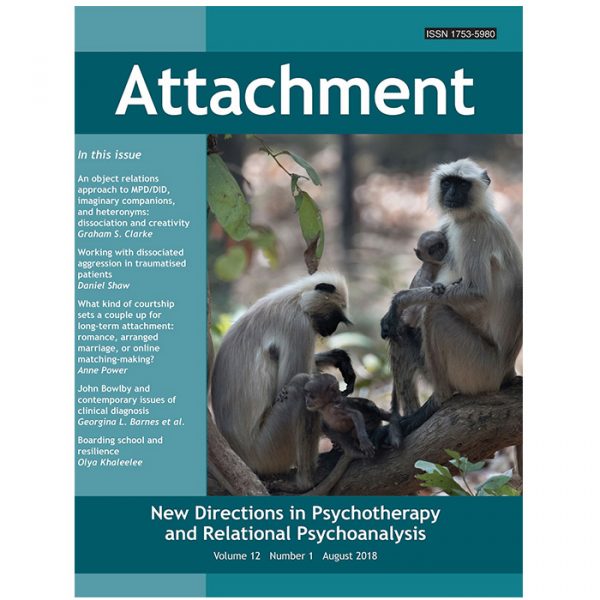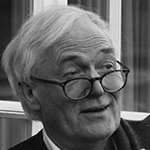Traumatic events happen in every age, yet there is a particularly cataclysmic feeling to our own epoch that is so attractive to some and so terrifying to others. The terrible events of September 11th 2001 still resonate and the repercussions continue to this day: the desperation of immigrants fleeing terror, the uncertainty of Brexit, Donald Trump in the White House, the rise of the alt-right and hard left, increasing fundamentalism, and terror groups intent on causing destruction to the Western way of life. If that were not enough, we also have to grapple with the enormity of climate change and the charge that if we do not act now, it will be too late. Is it any wonder many are left overwhelmed by the events they see on the news?
Galvanised by the events outside of his consulting room, in 2015, David Morgan began The Political Mind seminars at the British Psychoanalytical Society and their successful run continues today. A series of superlative seminars, mostly presented by colleagues from the British Society plus a few select external experts, that examine a dazzling array of relevant topics to provide a psychoanalytic understanding of just what is going on in our world. This book is the first in The Political Mind series to bring these seminars to a wider audience.
The Unconscious in Political and Social Life contains compelling contributions from Christopher Bollas, Michael Rustin, Jonathan Sklar, David Bell, Philip Stokoe, Roger Kennedy, David Morgan, M. Fakhry Davids, Ruth McCall, R. D. Hinshelwood, Renée Danziger, Josh Cohen, Sally Weintrobe, and Margot Waddell. They investigate so many vital issues affecting us today: the evolution of democracy, right-wing populism, prejudice, the rise of the far right, attitudes to refugees and migrants, neoliberalism, fundamentalism, terrorism, the Palestine-Israel situation, political change, feminism, austerity in the UK, financial globalisation, and climate change.
This book needs to be read by all who are concerned by the state of the world today. Psychoanalysis and psychoanalysts with their awareness of what motivates human beings bring clarity and fresh insight to these matters. A deeper understanding of humanity awaits the reader of The Unconscious in Political and Social Life.





 David Morgan is a consultant psychotherapist and psychoanalyst fellow of the British Psychoanalytical Society. He is also a training analyst supervisor at the British Psychoanalytic Association, and a lecturer recognised nationally and internationally. He co-edited Violence, Delinquency and Perversion (2007) and has authored many publications and chapters, most recently ‘Inflammatory Projective Identification in Political and Economic Terrorism’ in Psychoanalytic Psychotherapy (2018), as well as ‘The Return of the Oppressed’, a speech given at the Warsaw EPF Conference (2018). He is currently a director of Public Interest Psychology Ltd as well as a member of the IPA committee on Humanitarian Organisations. He has been the chair of ‘Political Minds & Frontier Psychoanalyst’, a radio broadcast series on Resonance FM.
David Morgan is a consultant psychotherapist and psychoanalyst fellow of the British Psychoanalytical Society. He is also a training analyst supervisor at the British Psychoanalytic Association, and a lecturer recognised nationally and internationally. He co-edited Violence, Delinquency and Perversion (2007) and has authored many publications and chapters, most recently ‘Inflammatory Projective Identification in Political and Economic Terrorism’ in Psychoanalytic Psychotherapy (2018), as well as ‘The Return of the Oppressed’, a speech given at the Warsaw EPF Conference (2018). He is currently a director of Public Interest Psychology Ltd as well as a member of the IPA committee on Humanitarian Organisations. He has been the chair of ‘Political Minds & Frontier Psychoanalyst’, a radio broadcast series on Resonance FM.
Virginia Ungar, MD, President of the International Psychoanalytical Association, from the Foreword –
This excellent book is a must for analysts and for readers interested in understanding our troubled world in a contemporary frame. […It] shows that psychoanalysis has to take an ethical stance when confronted with the dehumanisation tendency in our contemporary world.
Professor Ian Parker, Emeritus Professor of Management, University of Leicester School of Business; President, The College of Psychoanalysts – UK –
This book shows that the radical spirit of the British tradition in psychoanalysis is alive and well and haunts the social and political institutions that house it. The contributions illuminate the cultural contexts which make psychoanalysis possible, throwing a particular uncanny light on who we are now and what we do to each other.
Samir Gandesha, Professor of Humanities and Director of the Institute for the Humanities at Simon Fraser University, Vancouver –
This wonderfully scintillating volume powerfully addresses the key questions of our troubled times, from the relation between polis and psyche, psychoanalysis and feminism, alterity and prejudice, to problems of resurgent authoritarian populism, neo-liberalism, market and religious forms of terror as well as the looming challenge of climate change. It shows beyond a shadow of a doubt the utter indispensability of psychoanalysis not just in a clinical setting—increasingly dominated in this age of austerity by quick pharmacological fixes and band- aid solutions such as CBT—but, relatedly, to thoughtful, sustained, and rigorous practices of critique and engagement within the wider public sphere.
Adam Bull, PhD Candidate –
In this excellent new book, David Morgan makes a compelling case for why psychoanalytic thinking remains particularly important for understanding the pertinent issues that dominate social and political discourse. The discussion of issues such as has been characteristically chaotic, yet Morgan’s contribution represents a rigorous engagement with traditional modes of psychoanalysis (and particularly Freud) in a contemporary political setting. It is a must read for those interested in psychoanalysis and politics.
Maxine K. Anderson –
This book shines a beacon into the turbulent waters of the 21st Century. Having founded an on-going series entitled The Political Mind, dedicated to bringing thoughtful discourse to illuminate these emotion-laden times, David Morgan has compiled several of the papers presented in this series. Part of the richness of this trove is the complexity and depth which different psychoanalytic viewpoints afford on a variety of topics: the abandonment of accountability in the reversion from thought to action; how the many voices within a democracy may give rise to the longing for a single-voiced strong leader, often the first step toward totalitarianism; the allure of tribal behavior in the face of fears of difference and the dread of uncertainty; inflammatory projective identification as a means not only for externalizing one’s experience of dehumanizing humiliation, but also as vengeful payback for that trauma. One connecting thread throughout the book is how intense emotion may easily sweep away considered thought. Another is the tenacity of our narcissistic, self-serving tendencies. For instance, how privileging profit and greed has blinded many institutions and governments to the dehumanizing consequences of such policies. In terms of individual responsibilities, often shirked, a very significant contribution is the moral dimension we all face in the current climate crisis.
In his introduction Morgan suggests that the Political Mind series is ongoing, suggesting that more volumes will be forthcoming. This can only be good news at a time when maintaining openness to understanding these emotion-based forces may be wearying and looking seriously toward needed change quite daunting. Navigating these turbulent waters will require as much sturdiness as each of us can muster. David Morgan’s offerings can only nourish us in this task.
An Amazon customer 5 star review / July 2019 –
A fascinating insight into the current state of the world from a psychoanalytic perspective. While the facts of the discussions here paint a fairly bleak picture of the world we live in, there’s something strangely comforting in the framing of terrifying events and movements in a psychological context. The book’s many brilliant contributors and the calm authority of David Morgan combine to remind us that as alien as some of the beliefs and ideologies of the political leaders in the world today are, many are underpinned by universal elements of the human mind. Complex but accessible, it’s an interesting perspective on the political world that grounds many of the hysterical debates around the personality and humanity of our political figures and systems. An important read.
Joanne Owen, Review from LoveReading.co.uk –
This insightful anthology explores the effects of social and political turbulence on the individual and social unconscious with invigorating verve.
Based on a series of progressive “The Political Mind” seminars established by David Morgan of the British Psychoanalytical Society, this collection is underpinned by Morgan’s belief that psychoanalysis “makes a valuable contribution” to the “important endeavour” of redeveloping “a culture that preserves the importance of humanity”, as opposed to embracing neoliberalism “with its emphasis on market forces over human love and joy”. To this end, the fourteen essays contained herein offer measured discussions of a broad range of pertinent socio-political matters from a psychoanalytical perspective.
From exploring the rise of the far-right and the debilitating “we’re all in it together” myth of austerity, to examining the psychologies of prejudice and tolerance in relation to attitudes towards refugees and migrants, this provides those looking for fresh takes on today’s troubled – and troubling – political turmoil with stimulating sagacity from preeminent experts in their fields.
Malgorzata Kalinowska, Journal for Analytic Psychology 65, 2: 423-430, 2020 –
‘This collection of articles on urgent contemporary topics reflects a growing awareness of the meaning of a psychoanalytic perspective for understanding political and social processes. […] I found ‘The Unconscious in Social and Political Life’ very useful in providing a deepened analysis of what I see as a contemporary regressed state of the culture, in which both phenomena take place: the activation of post-traumatic fragments and the challenges to our identities and psychological states of mind in liquid modernity. While in different branches of contemporary psychoanalysis the cultural and social is increasingly appreciated, we are also increasingly aware of the impossibility of neutrality when both analyst and patient are so strongly influenced by what is taking place in the world.’
Iain Ferguson, 2020, Logos: A Journal of Modern Society & Culture –
‘…several of the chapters in this book contain useful insights into the impact of neoliberal social and economic policies on people’s emotional lives … At a time when the threat from the far right across the globe is greater than it has been at any time since the 1930s, that kind of ideological support from psychoanalysis is both timely and welcome.’ The full review can be found here.
Jeremy Holmes, University of Exeter, UK, British Journal of Psychotherapy 36(4): 662–666 (2020) –
‘… a readable and rich collection, ranging from highly personal accounts to the more theoretical ones … a psychoanalytic contribution to public debate is urgently needed.
… In sum, psychoanalytic sympathizers should read this brave book …’
Ben Scanlan, existential phenomenological psychotherapist and supervisor –
‘I feel refreshed from having engaged with this book … I feel books like this are important, and should be necessary as part of any CPD or initial training to make one engage outside the sphere of one’s knowledge. This is a huge step forward for the profession …’
Contemporary Psychoanalysis review
Helen Lowe, BACP member, psychodynamic counsellor –
‘This book is a brave and ambitious attempt to understand the wider world through psychoanalysis. …undoubtedly a ‘big read’, but it’s packed full of stimulating ideas.Kettle on, phone down, enjoy!’
Healthcare Counselling and Psychotherapy Journal, published by the British Association for Counselling and Psychotherapy review
Malgorzata Kalinowska, individual member, IAAP, ‘Journal of Analytical Psychology’, 2020, 65: 2, 423–427 –
‘The book gives full respect to the meaning of the social unconscious, both in the context of the individual process and in the wider social dynamic. … In a sense, The Unconscious in Social and Political Life is about the meaning of thinking in times when thinking becomes impossible. … I believe that the unique contribution of psychoanalysis is to save space for thinking … Saving space in everyday life for thinking on the topics presented in this book may feel scary at times, maybe most of the time, but it may be the most important contribution we can make to contemporary social situations. And the authors of this book pave the way.’
Stephen Frosh, ‘The International Journal of Psychoanalysis’, 101:5, 2020 –
‘intriguing […] a welcome book, demonstrating a commitment by members of the British Psychoanalytical Society to engage with critical politics and also a willingness to expose this not just in print, but also in the “Political Mind” seminar series from which the book derives.’